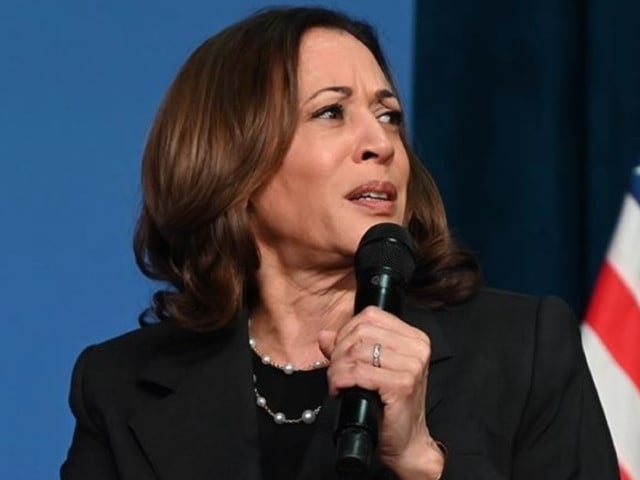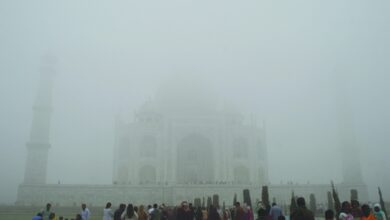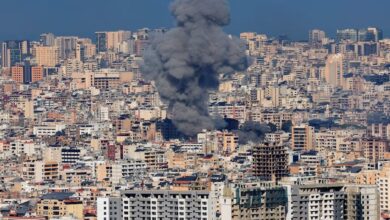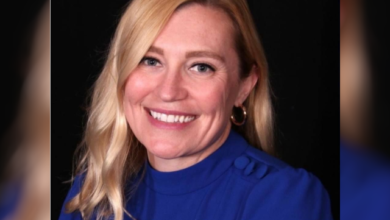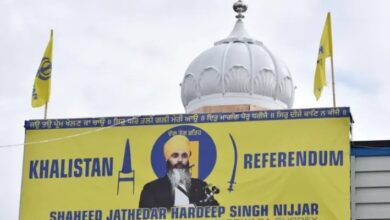With just days to go before the presidential election, Democrat Kamala Harris engaged with Arab Americans in the critical battleground state of Michigan. Kamala Harris directly addressed Michigan’s 200,000 Arab Americans, promising to use her presidential powers to end the war.
She started her speech by addressing the devastating civilian casualties and displacement in Gaza and Lebanon caused by Israel’s onslaught on the two countries.
“This year has been difficult given the scale of death and destruction in Gaza,” she said, pledging that as president, she would do everything in her power to “end the war in Gaza, bring home the hostages, end the suffering, ensure Israel is secure, and ensure the Palestinian people can realise their right to dignity, freedom, security and self-determination.”
Flouting a UN Security Council resolution demanding an immediate cease-fire, Israel has faced international condemnation amid its continued offensive on Gaza since an Oct. 7, 2023 attack by Palestinian group Hamas.
Since then vast tracts of Gaza lie in ruins amid a crippling blockade of food, clean water, and medicine on a 2 million densely-packed population majoirty of which is comprising children and women.
Israel has killed nearly 43,300 Palestinians, wounded more than 102,000 others in Gaza and is accused of genocide at the International Court of Justice for its military onslaught.
Meanwhile, Israel has killed nearly 2,900 people and wounded more than 13,000 others in its attacks carried out against Lebanon.
Trump had also visited Dearborn, Michigan, a hub for the Arab American community, on Friday, promising to end the conflict but failing to outline specific solutions.
Recent opinion polls reveal a historically close race between the two candidates, with Harris, 60, bolstered by robust support among female voters, while Trump, 78, is gaining traction with Hispanic voters, particularly men.
Despite overall unfavourable views of both candidates, more than 78 million Americans have already cast early ballots—approaching half the total votes in the 2020 election, where turnout was the highest in over a century.
In Detroit Kamala Harris made her closing pitch for the presidency at a historically Black church, she addressed parishioners at the Greater Emmanuel Institutional Church of God in Christ, urging them to take action: “In just two days we have the power to decide the fate of our nation for generations to come,” she stated. She emphasised the importance of not just prayer but also of active participation in shaping the future.
While Kamala Harris focused on connecting with undecided voters, Trump’s rally in Pennsylvania took a different tone. Abandoning his prepared remarks, he labelled Democrats a “demonic party,” mocked Democratic President Joe Biden, and even lamented the price of apples.
Notably, Trump, who survived an assassination attempt in July, complained about the bulletproof glass around him and mused that an assassin would need to shoot through the media to reach him. “To get me, somebody would have to shoot through the fake news, and I don’t mind that so much,” he quipped, continuing his long-standing criticism of the press.
Trump’s comments came after he suggested last week that Republican critic Liz Cheney should face consequences for her foreign policy views, prompting an investigation by an Arizona prosecutor.
At a subsequent rally in Kinston, North Carolina, Trump seized on a disappointing jobs report, warning of a “nation in decline” and ominously predicting a repeat of the Great Depression.
As both candidates make their final appeals, the outcome of the election remains uncertain, particularly in Michigan, Pennsylvania, and Wisconsin—states once considered reliably Democratic that are now pivotal battlegrounds. Kamala Harris’s campaign aims to secure a majority in these states, recognising their significance in the Electoral College.
Election Day is slated for November 5, with Americans not only deciding the presidential race but also the fate of Congress and various state and local positions. Kamala Harris’s campaign strategy appears designed to resonate with a narrow slice of undecided voters, while Trump remains focused on energising his core supporters.
With tensions high and stakes even higher, the coming days will determine the direction of the nation as both candidates vie for the presidency amidst a politically charged atmosphere.

